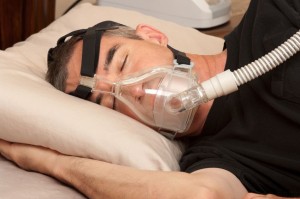How seniors can successfully manage sleep apnea
 Sleep apnea is a serious sleep condition that affects one in every five adults. Obstructive sleep apnea causes the throat muscles to involuntarily relax during sleep. When the tongue blocks the airway, the lack of oxygen will send a signal to the brain, causing the person to wake up several times an hour. Those who suffer from this condition are more likely to develop high blood pressure, type 2 diabetes, liver problems and dementia.
Sleep apnea is a serious sleep condition that affects one in every five adults. Obstructive sleep apnea causes the throat muscles to involuntarily relax during sleep. When the tongue blocks the airway, the lack of oxygen will send a signal to the brain, causing the person to wake up several times an hour. Those who suffer from this condition are more likely to develop high blood pressure, type 2 diabetes, liver problems and dementia.
If you believe are suffering from the symptoms of sleep apnea (like loud snoring, fatigue, morning headaches and irritability), there are ways to successfully manage this condition to improve overall health:
Consider investing in a CPAP machine
One way to manage sleep apnea is by visiting a sleep specialist and getting a doctor’s approval to purchase a continuous positive airway pressure(CPAP) machine. A CPAP machine is worn over the face at night to allow applied air pressure to keep the airways open. There is also the option of a CPAP-heated humidifier, which keeps the pressurized air moist to avoid waking up with a dry mouth. Although the CPAP can be a great tool for some, it is not the solution for those who have trouble wearing it during the night. Other technological developments are being created to help treat the condition without wearing a mask. For example, the United States and five other countries have shown results for a new hypoglossal nerve stimulator (HGNS), according to Forbes. This device is reported to be “more tolerable” than a CPAP.
Elevate your head
Elevating your head four inches above the bed can take pressure off your airway, making it easier to breath during sleep. Elevating your head can also eliminate loud snoring that may be disruptive to your partner. Next time you are heading to bed, sleep with two pillows instead of one.
Avoid alcohol
Alcohol causes increased relaxation of the airways during sleep, making it more likely for your tongue to block your throat during sleep. Although alcohol may not have this effect as it wears off throughout the night, it is important to cut back if you believe you’re suffering from sleep apnea. You will get better sleep and improve overall physical and mental health at the same time.
Sleep apnea can affect quality of life if not properly addressed. If you need additional help managing this condition, discuss any concerns with your doctor.






